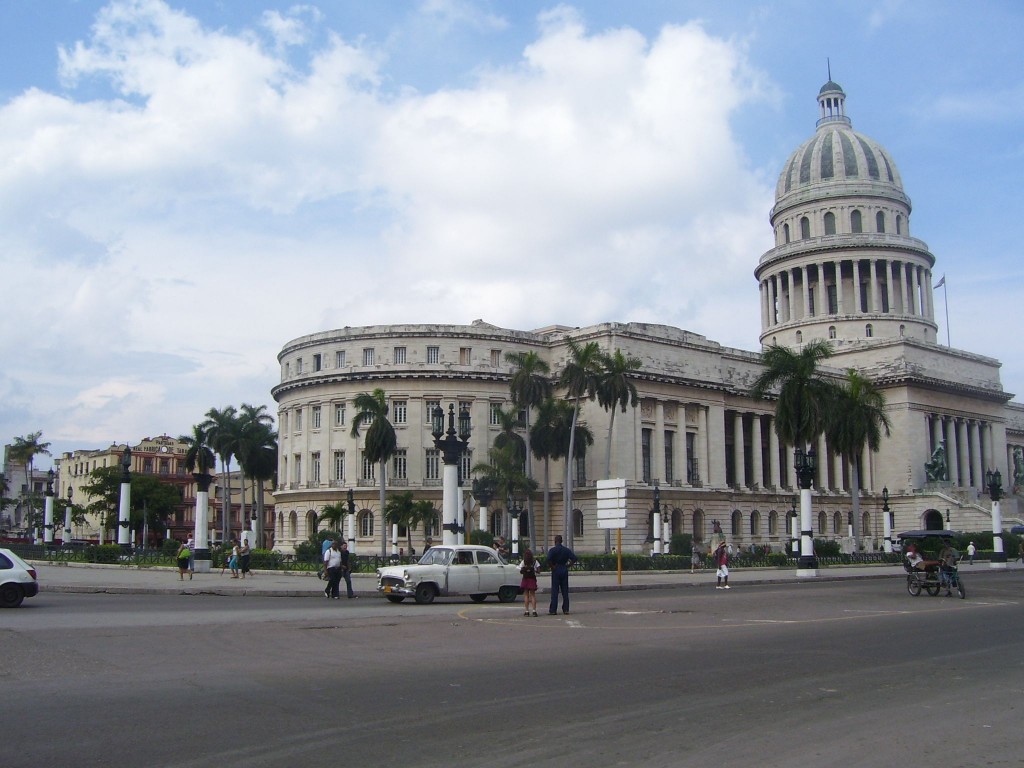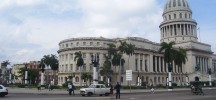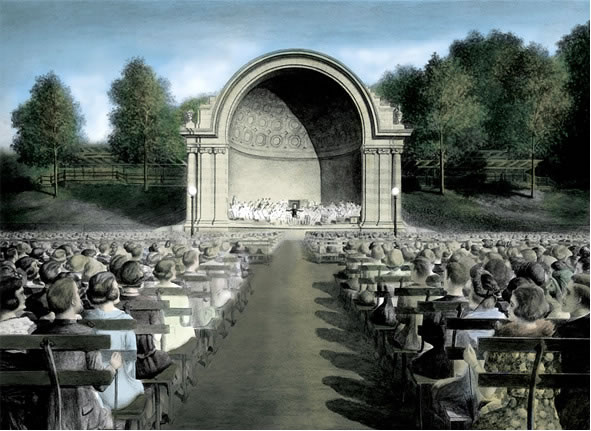Before the revolution, Cuba was a paradise resort for wealthy Americans. Despite many political and economic vagaries, the disappearance of Soviet aid, and the mass exodus of impoverished and dissident Cubans, the only thing no one disputes, even today, is the island´s beauty, its rich culture, and the warmth of the people of this land.
I have been a witness to the everyday Cuban reality on two occasions, one while presenting a documentary at the prestigious Havana Film Festival in 2000, and the other as a student at the International Film School of San Antonio de Los Baños in 2007. The two experiences were quite different, not only because the country changed substantially over those eight years, but also because the first time I lived in a house in the fashionable neighborhood of Miramar, and the second was spent in the isolated and unreal but wonderful world of the international film school, where Cubans are only a minority.

The first time around, I was shocked to find a media landscape worthy of Orwell’s Nineteen eighty-four: there were only two newspapers and two television channels, all of them controlled by the central government, and voicing its every opinion. Everything seemed to be wrapped in an Orwellian atmosphere. The virtually daily news reports about alleged plots to assassinate Castro also reminded me of “Animal Farm”, by the same author, with its creation of imaginary enemies to appease the disgruntled masses. The subtle fear to express any opinion against the Castro administration, which was still prevalent in 2000, seemed to point to thousands of Big Brother eyes watching the citizens’ every move, from the bars and streets of Havana to Guantanamo and from the beaches of Varadero to Trinidad.
On my second visit, with Castro ailing and partially retired from his post, I found a widespread openness in all aspects of society, Hollywood movies and MTV on television, and a much more developed consumer market, where the traces of multinationals had become much more apparent. Among the positive changes, from a tourist’s standpoint, I noticed that there were many more restaurants this time, when in 2000 it was really almost impossible to eat a decent meal in downtown Havana, with the exception of “paladares,” which are makeshift diners hosted by families in their own homes.

About a year ago, a smart teenager from Kentucky, who was a Republican supporter, asked me what I thought about the voting intentions of Cuban citizens in the event of free elections. My response was that, at first glance, I saw the Cuban people divided into two, with no possibility of a clear majority for neither the supporters of the ruling party nor the opposition. My answer surprised him greatly: from the perspective of a Republican, the son of an American Air Force colonel, all Cubans would be happy that the communist regime might be put to an end once and for all. But the Cuban reality is infinitely more complex than that, and only time will tell what the Cuban people really want, in their heart of hearts.
For all of us who have fallen irresistibly in love with this magical and unforgettable island, the most important thing is that, whatever happens, there will be no bloodshed, and that in the post-Fidel era, Cubans will not lose all the good things they have achieved; their excellent health care, social, and educational systems; and that they will acquire what they still lack, namely, freedom of expression, freedom to leave and enter their country as they please, and access to goods manufactured abroad at reasonable prices.


There’s still the incidence of the unknowable in the streets. Cuba is an example of an openness that shares not itself with anybody more into the mundane daily and less with the uplifted far involved. The music, nostalgia of past times -those entangled with the always inspiring present-, dancing and adapted contrasts, doesn’t confounds the Free: like a dart to the shelled heart.
Thank you.
x
For 2 years I am dealing with Cuba and looking for information on the subject. There are a lot of pages with “Kuba” or “Cuba”in the url and it is really difficult to find good information.